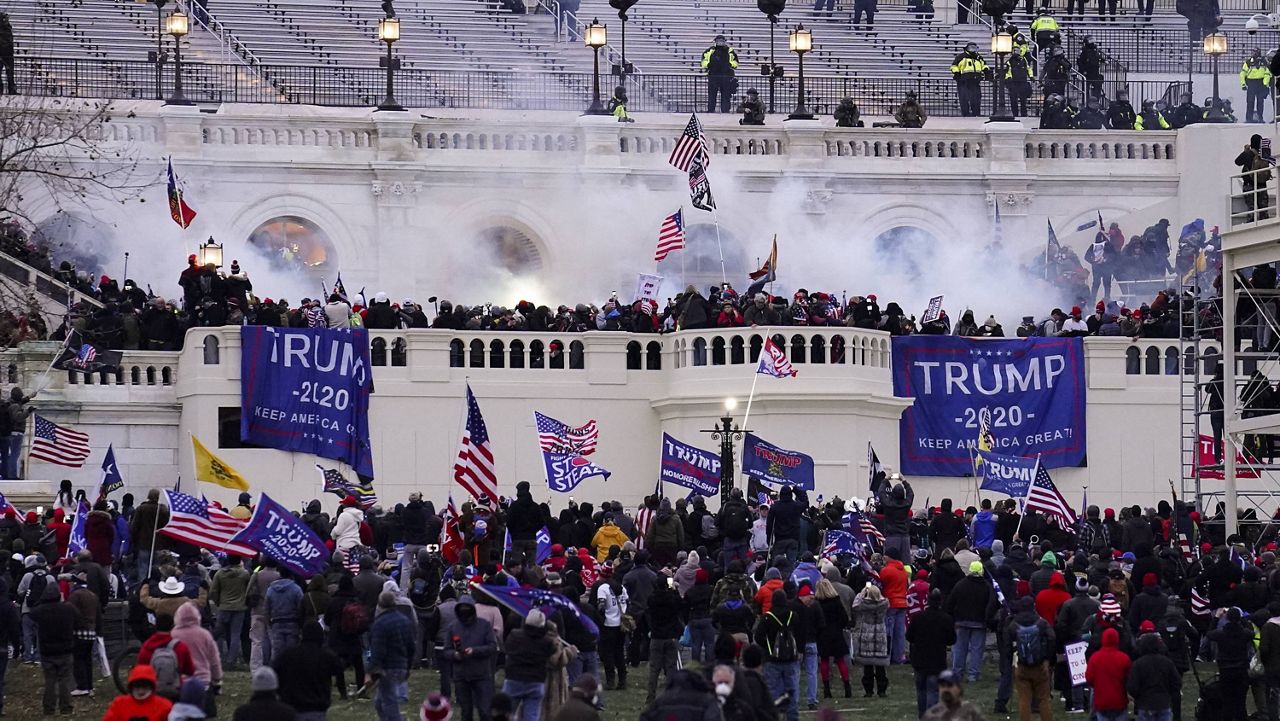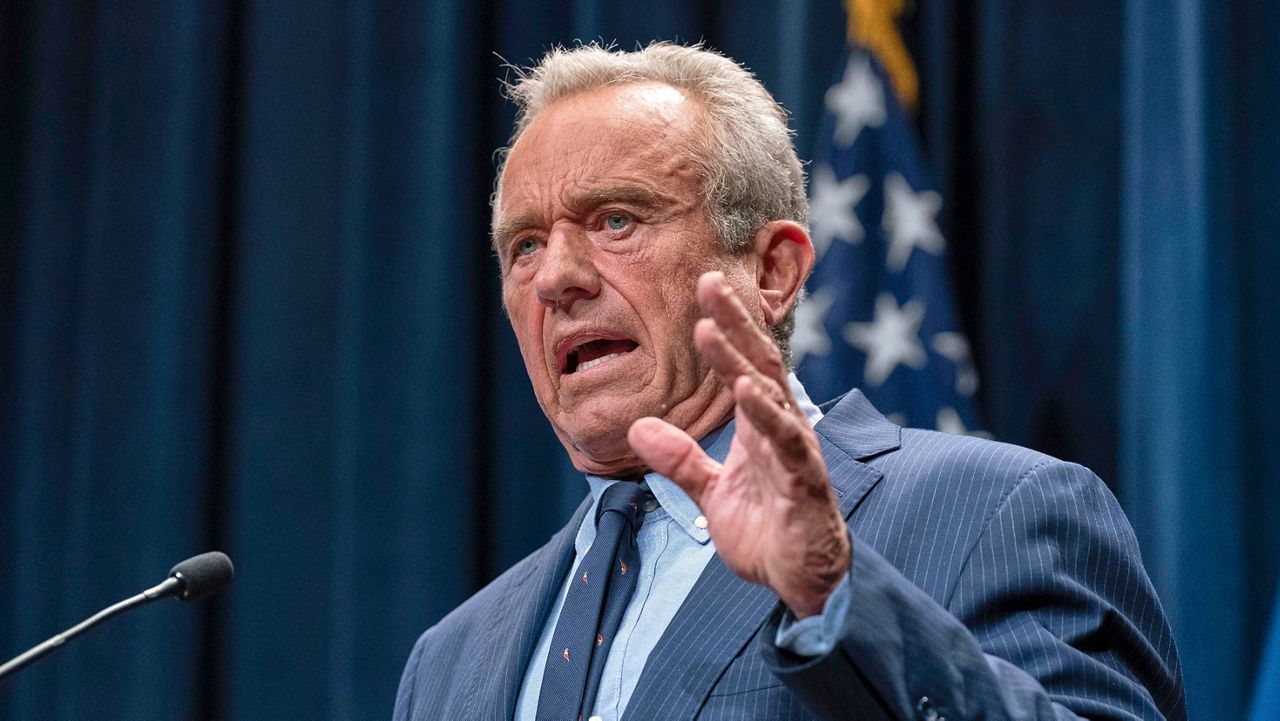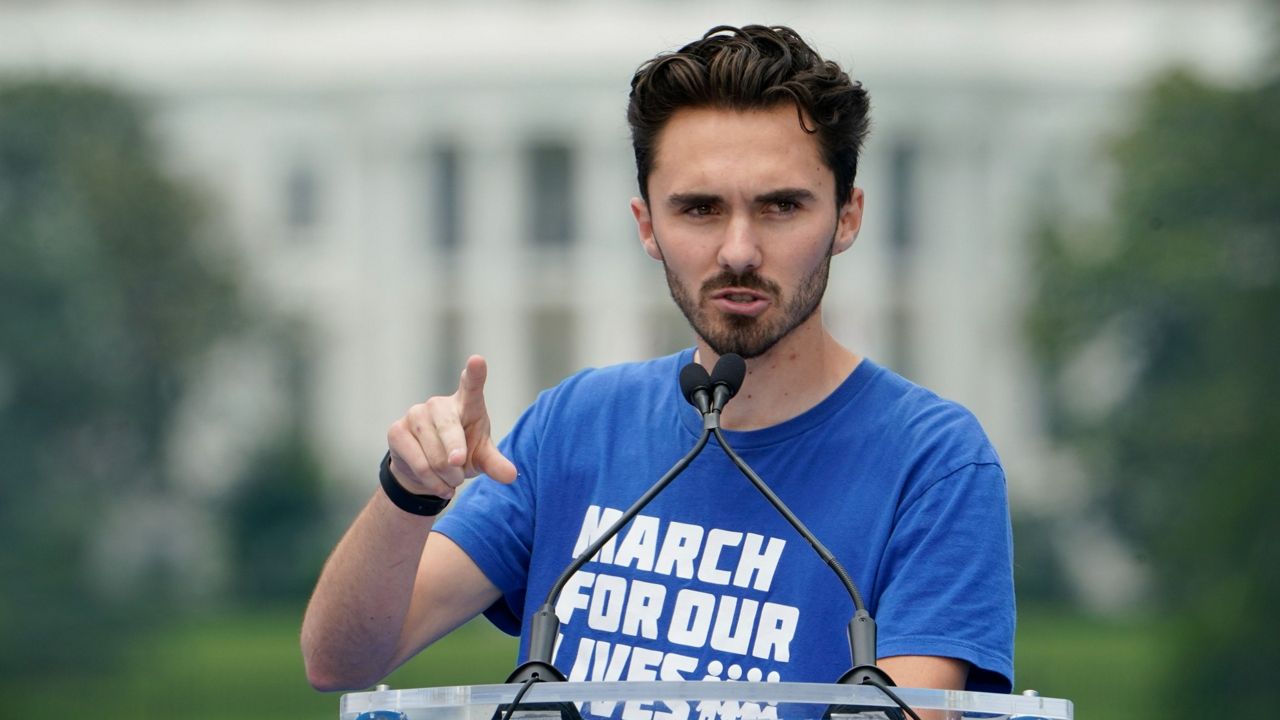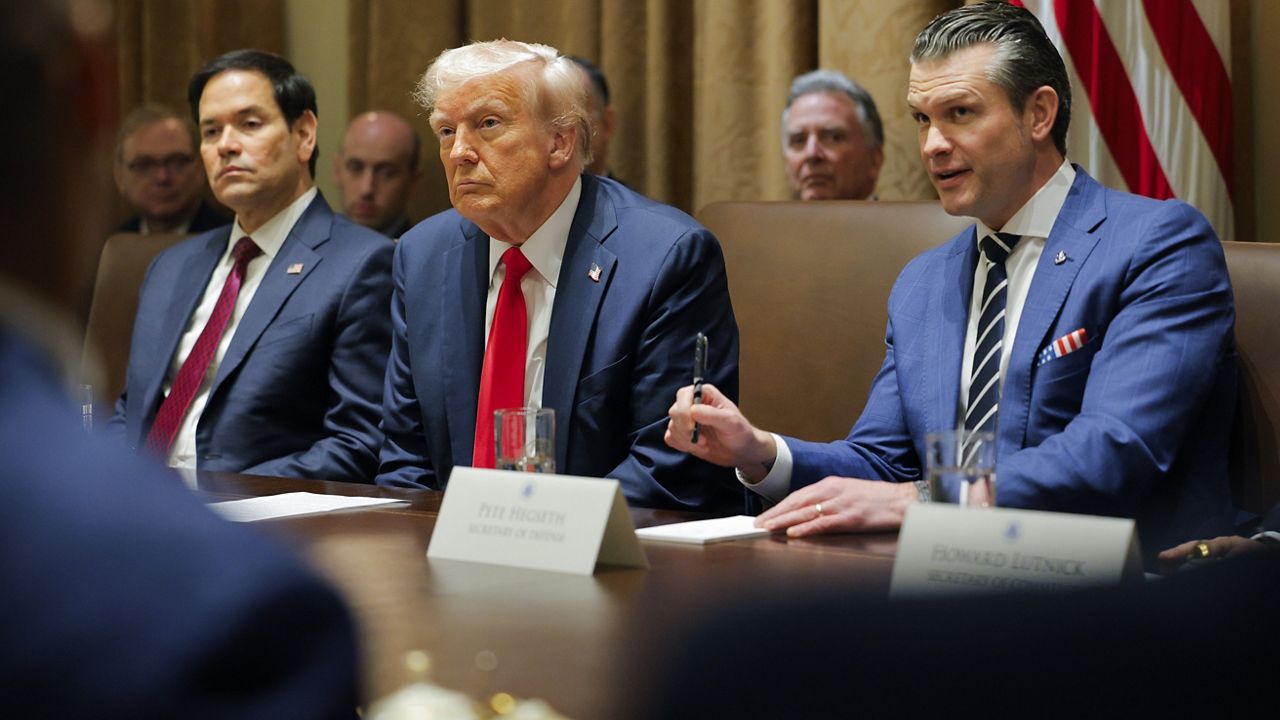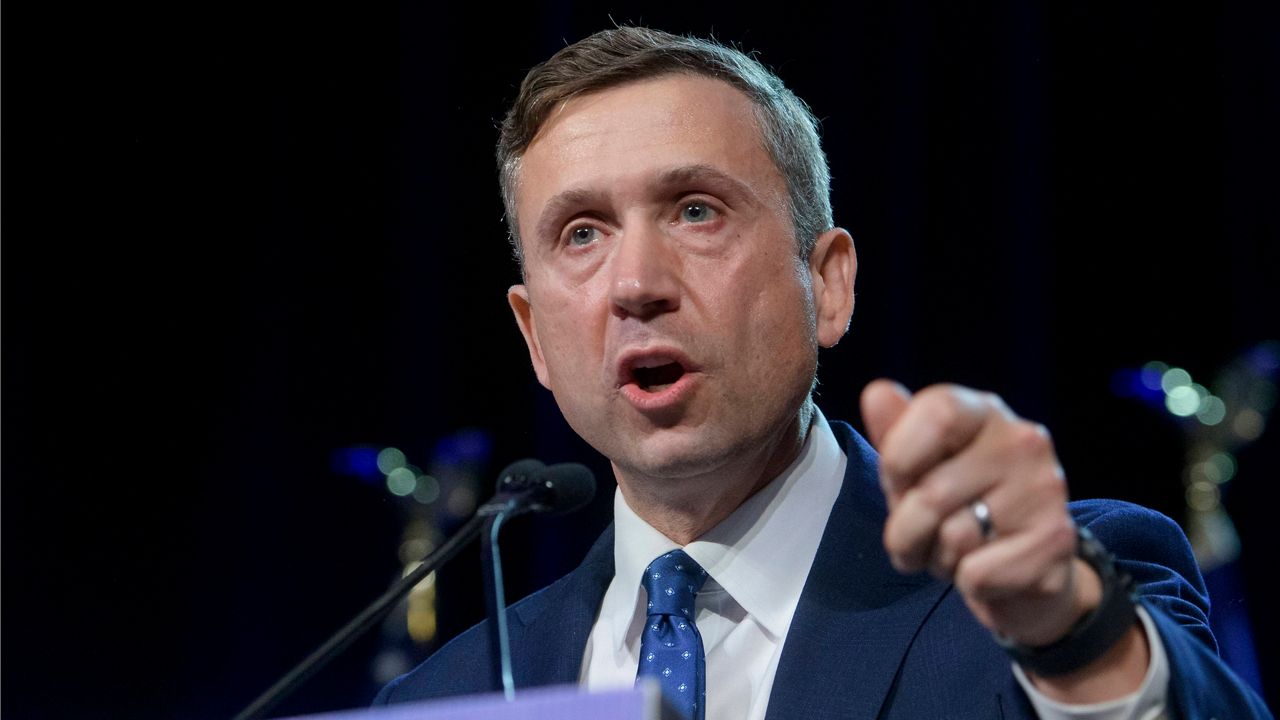The House voted Wednesday to pass legislation that would create a bipartisan, independent commission to investigate the Jan. 6 Capitol riot, despite vocal opposition from the House and Senate Republican leaders.
What You Need To Know
- The House voted Wednesday to pass legislation that would create a bipartisan, independent commission to investigate the Jan. 6 Capitol riot
- The bill received the support of 35 Republican members of the House despite opposition from Republican leadership, including House Minority Leader Kevin McCarthy and Senate Minority Leader Mitch McConnell
- The bill now heads to the Senate, where it faces an uphill battle in the evenly divided chamber
The bill passed 252-175.
More than 30 House Republicans joined every Democrat in the House to pass the measure, despite opposition from Republican Congressional leadership, including Senate Minority Leader Mitch McConnell and House Minority Leader Kevin McCarthy.
The bill is the result of negotiations between Homeland Security Committee Chairman Bennie Thompson, a Democrat, and the panel’s ranking member, John Katko, a Republican.
Despite the bipartisan talks, top Republicans railed against the proposal.
Minority Leader Kevin McCarthy issued a statement Tuesday arguing it would duplicate other inquiries already underway and should also encompass violence during last summer’s racial justice protests.
“Given the political misdirections that have marred this process, given the now duplicative and potentially counterproductive nature of this effort, and given the Speaker’s shortsighted scope that does not examine interrelated forms of political violence in America, I cannot support this legislation," McCarthy, R-Calif., said.
House Minority Whip Steve Scalise, R-La., sent letters to members Tuesday recommending they vote no, according to reports.
But Democrats have said there needs to be a full accounting of what happened Jan. 6 and the events that led up to it.
That day, a mob of Donald Trump supporters clashed with police and stormed the Capitol, disrupting the certification of Joe Biden’s election victory. Five people died at the scene or in the hours after, and more than 140 police officers were injured. Members of Congress were rushed to secure locations as rioters breached the building.
Then-President Trump, who delivered a speech to the crowd just before the attack, was impeached by the House a week later for inciting an insurrection. He was, however, acquitted by the Senate.
“The American people expect and deserve the truth about what happened on January 6th in a manner that strengthens our Democracy and ensures that January 6th never happens again," House Speaker Nancy Pelosi said in a statement Tuesday.
Meanwhile, some Republicans have sought to downplay the attack on the Capitol. At a House Oversight Committee hearing last week, Rep. Andrew Clyde of Georgia compared it to a “normal tourist visit.” Photos show that Clyde helped barricade a door to the House floor and look panicked at one point.
Also at the hearing, Rep. Paul Gosar of Arizona accused the Justice Department of “harassing peaceful patriots” by charging suspects. And in an interview with Fox News in March, Trump falsely claimed the rioters were “hugging and kissing the police and the guards” and posed “zero threat.”
The bill now heads to the Senate, where it faces an uphill battle in the evenly divided chamber. The measure would require 10 GOP Senators to join all 50 Senate Democrats to overcome the 60-vote filibuster threshold.
Senate Majority Leader Chuck Schumer, D-N.Y., promised Tuesday he would put the legislation up for a vote.
"Republicans can let their constituents know: Are they on the side for truth or are they going to cover up?" Schumer said on the House floor.
A day after saying his caucus was undecided, Senate Minority Leader Mitch McConnell, R-Ky., came out in opposition of the bill Wednesday, calling it "slanted and unbalanced."
McConnell's opposition comes one day after he said Senate Republicans were "undecided" and wanted to "read the fine print" about the commission.
"It's not all clear what new facts our additional investigation, yet another commission, could actually lay on top of existing efforts by law enforcement and Congress," McConnell said on the Senate floor on Wednesday.
Like McCarthy, McConnell has questioned whether the inquiry would interfere with the hundreds of criminal cases being prosecuted by the Justice Department.
In a letter released Wednesday, a U.S. Capitol Police officer claiming to represent the view of dozens of their fellow officers expressed "profound disappointment" at McConnell and McCarthy's positions on the formation of the commission.
"The brave men and women of the USCP were subjected to hours and hours of physical trauma which has led to months of physical anguish," the letter signed by the "Proud Members of the United States Capitol Police" reads.
The letter was first reported by Politico.
"On Jan 6th where some officers served their last day in US Capitol Police uniform, and not by choice, we would hope that Members whom we took an oath to protect, would at the very minimum support an investigation to get to the bottom of EVERYONE responsible and hold them 100 percent accountable no matter the title of position they hold or held," the letter continues.
"It is inconceivable that some of the Members we protect, would downplay the events of January 6th," the letter continues. "Member safety was dependent upon the heroic actions of the USCP. It is a privileged assumption for Members to have the point of view that 'It wasn't that bad.' That privilege exists because the brave men and women of the USCP protected you, the Members."
The letter goes on to note that with the "constant reminders" of Jan. 6 – namely new indictments, new details from the investigation, or new footage from the riot – "it is unconscionable to even think that anyone could suggest we need to move forward and get over it."
"Unfortunately this letter comes to you anonymously because as U.S. Capitol Police Officers, we are expected to remain neutral and do our jobs with honor and integrity," the letter concludes. "It's unfortunate that our bosses (Congress) are not held to the same standard that we, the USCP, are."
The letter was not an official statement by the U.S. Capitol Police, the department said in a statement, noting that "the USCP does NOT take positions on legislation."
CNN says that they spoke to the officer who wrote the letter, but could not confirm the veracity of their claim that it represents the view of 40-50 USCP officers.
McCarthy’s opposition to the commission, breaking with Katko came less than a week after House Republicans ousted Rep. Liz Cheney, R-Wyo., from her leadership position and vowed a more unified front.
In a statement emailed to Spectrum News on Tuesday, Katko said: "I am confident Chairman Thompson and I negotiated a solid, fair agreement that is a dramatic improvement over previous proposals that sought to politicize a security review of the Capitol. I recognize there are differing views on this issue, which is an inherent part of the legislative process and not something I take personally."
Schumer criticized Republican leaders for not being on the same page with Katko.
"This shows how difficult it is to negotiate with Republicans,’ Schumer said. “If the Republican leaders are just going to throw their lead negotiators under the bus, why do they even participate in negotiations at all?"
The commission would be modeled after the panel that investigated the 9/11 terrorist attacks. It would include five members appointed by Democrats and five chosen by Republicans.
The commissioners would have subpoena power and must submit a report detailing their findings to Congress by Dec. 31.
The members would have significant expertise in the areas of law enforcement, civil rights, civil liberties, privacy, intelligence or cybersecurity. Current government officers or employees would not be eligible.
Trump said in a statement Tuesday that Republicans “should not approve the Democrat trap of the January 6 Commission.”
“It is just more partisan unfairness and unless the murders, riots, and fire bombings in Portland, Minneapolis, Seattle, Chicago, and New York are also going to be studied, this discussion should be ended immediately,” he said.
This article has been updated with new information about the letter from a U.S. Capitol Police officer.
Ryan Chatelain - Digital Media Producer
Ryan Chatelain is a national news digital content producer for Spectrum News and is based in New York City. He has previously covered both news and sports for WFAN Sports Radio, CBS New York, Newsday, amNewYork and The Courier in his home state of Louisiana.




